When I was younger, I often felt self-conscious and socially awkward. In fact, one of the reasons I wanted to become a Behavioral Scientist was to be better socially.
If you often feel anxious and embarrassed, this guide is for you. It will give you the tools you need to be more relaxed in social settings, get out of your head and into the conversation.
This guide is for anyone who’s feeling overly self-aware, but examples are geared toward adults in work or at college.
Note: Sometimes, the underlying reason for self-consciousness is social anxiety. If this is the case for you, here’s our list of the best books on social anxiety.
Let’s get started!
1. Focus on someone or something
Self-consciousness comes from being overly concerned with how people see us. We worry that we won’t be seen as smart, attractive, or that others are judging us.
It can be exhausting, and with too little evidence to support the argument in either direction, we go straight to the most negative conclusion.
To get out of this pessimistic mindset, try shifting your attention to the people around you and your environment.
Focus not on what others think of you but on learning about the people you’re with. Make it a point to find out one thing about every person you meet. It could be their job, their major, or what they did on the weekend.
The objective is to get out of your head. Put that energy into the people around you rather than into feeding an inner dialogue that’s holding you back.
2. Question your inner critical voice
It’s easy to believe the negative voice inside our head is always right. But have you tried questioning it? You might find out that it has little to do with what’s real.
Check the evidence from your life:
Can you recall a time you did something that proves your inner critic wrong? For example, if your voice says, “I always mess up around people,” remind yourself of a time when you did just fine.
Ask yourself if what you are feeling is reasonable. Or, are you letting a perception you think others have of you, run the story in your head?
3. Know that people notice you less than you think
In an experiment, students were asked to wear an embarrassing t-shirt.
By the end of the day, the students who wore the shirts estimated that 46% of the class had noticed. When polled, only 23% of their mates actually had.[1] In other words, their embarrassing t-shirt was only half as noticeable as they had thought.
What feels mortifying to us is usually having little to no impact on others. People are caught up in their own thoughts and struggles, too busy to worry about ours. The best thing we can do is remind ourselves that no one cares as much as we do, and even our own filter is not a perfect lens.
4. Know that it’s OK to say some stupid things
I remember talking to a girl I was crushing on when I was in high school. She was talking about how her brother liked a band, and like a crazy person, I said, “Ya, I know.” Like somehow, I knew what group her brother liked. My crush looked at me strangely but kept going.
Did it make any difference to my crush? Not really. At this point, I can laugh about it, but at the time it felt humiliating.
Try turning the tables on the situation. Would you care if someone blurted out something silly? Or would it just pass you by without giving it extra thought? It’s better to talk freely even if you say something stupid every once in a while. The alternative is to always guard yourself, and that can make you come off as stiff and aloof.
5. Don’t try to fight your feelings
Emotions tend to cling harder when we fight them and weaken when we accept them.[2]
When you are anxious, and feeling uncomfortable in a social setting, what are you thinking about? How does thinking about that make you feel? Happy, sad, nervous, jealous? What’s your body doing when you’re in your head and feeling awkward at a party? Are you sweating, jumpy, yawning a lot (a reaction to nerves)?
Simply accept how you feel rather than trying to change it.
Now focus outward. Talk to someone. Ask them how they’re doing. What brings them to this party/event? Do they know anyone? Then check your head. How do you feel when you’re talking to someone? Do you get any less nervous as the conversation goes on? If you were blushing, has it subsided yet?
Practice going back and forth between your inner thoughts and how you feel when you are talking to others. See if you feel better when you’re in your head, listening to your internal dialogue, or when you’re spending your energy on others.
6. Focus on your positive traits
This isn’t “think happy thoughts, and you’ll be fine.” Instead, you want to base your self-worth on your real, positive qualities rather than cynical and questionable self-talk. This is what we know is true:
- You have talents and abilities that give you fundamental value.
- This combination of characteristics makes you unique and memorable.
- You are worth spending time with and knowing.
Try to list your concrete skills like your mathematical ability, you’re a good writer, you’re multilingual, you’re a great cook. Then there are your personality traits. You’re kind, honest, genuine, funny, enthusiastic, etc.
Even if you can’t make a full list today, write one positive quality down every day and then review the list every week. When you have a comprehensive list, read it every day. You’re training your mind to focus on what you do well and to be able to access it quickly.
7. Make sure you’re reading the situation right
Negative experiences can teach us to be on guard and defend ourselves from criticism and hurt. This can affect how we perceive the world and the people we encounter.
Those of us who are overly self-conscious might believe the world will judge us harshly because that is what we’ve experienced. However, as I’ve pointed out, people don’t care that much about how we act or what we say. Every new person you meet thinks of you as a blank slate.
When you’re in a scary social situation, ask yourself, “Is there a chance my past experience is affecting how I’m seeing this interaction? Is there another, more realistic way I can approach his conversation?”
Believe people will be friendly, and most of the time, they will be. If not, it says more about them than you.
8. See yourself as a social observer
People watching is fascinating, and it shows us how our basic humanity makes us all messy, foolish, and funny. Go to the mall, grab a coffee/tea, and watch people walk with their friends. Listen in as they sit beside you and talk, or as they chase their kids down the hall.
Now notice their body language, their tone of voice, and eavesdrop on what they’re saying. What we’re doing is training you to switch your focus from yourself to others and to think objectively about what you’re witnessing.
Are people relaxed or stilted? Is their posture good, or are they slouching? When they talk, are they quiet, or does the volume go up and down with excitement? The more we see others being their imperfect selves, the more we’ll realize this is what ‘normal’ looks like.
Go into this observer mode when you walk into a room of strangers. It can help you be less self-conscious.
9. Assume that people will like you
This one is about the mechanics of being seen as confident rather than inhibited or self-conscious. When we feel uncomfortable, it can make us talk softer, hug our bodies with our arms, and speak faster to get the words out and move the focus off us as soon as possible. It can make us seem aloof, and even if we don’t intend to, it makes us less approachable.
Be confident and friendly right off the bat. Walk up to people with a warm smile and present yourself. If you’re uncertain about the details, look at how likable, confident people do it and learn from them. Assuming people will like you is a self-fulfilling prophecy. Assuming they won’t is, too.
10. Ask about others to take the focus off you
It’s easier to focus on someone else other than ourselves. When you meet someone for the first time, ask them what they do for fun. What are their hobbies, or do they have any pets? Listen carefully, nod, and give them signs that you are enjoying their story. Then add anything relevant that applies from your life. Things like your pets – what kind are they, their name, breed…or your hobbies. At the end of the day, you want to have a balance between learning about them and sharing about yourself.
The goal is to learn about someone else because it’s hard to be self-conscious when you’re focused on getting to know another’s interests and stories.
11. Make internal progress checks, not comparisons
Jealousy is a miserable emotion. It makes you feel small and worthless and sucks the joy out of everything. It’s like anger directed at someone else, but you are the one who feels crappy.
Avoid both overexaggerating someone else’s talents or trying to find flaws in them to make yourself feel better. No one is perfect, and tearing them down when you feel envious just retains the focus on you because you are still comparing yourself to someone else.
Here’s a thought: What if we were OK with the fact that someone is more accomplished than us? When we accept this, it helps us see ourselves differently.
Our value then has nothing to do with how successful we are or how good we are at something. We want to go from “I like myself because I’m good at…” to “I like myself.” (Period.) This makes our self-acceptance unconditional.
How do we accept that others are more accomplished than us and be OK with that? First, let that fact sink in, and allow all your emotions of envy and sadness to come to you. Accept those emotions rather than fight them. Now, you no longer need to fear them. Afterward, you will be less prone to comparisons.
Here’s another way to do it:
Instead of thinking, “Well, at least I’m better than them when it comes to X.” Say, “I’m not good at everything, which is OK because my value isn’t based on my achievements. I have value because I am 100% myself”.
Let’s talk more about how to be more self-accepting…
12. Practice accepting yourself
Self-acceptance is one of the biggest steps we take towards achieving self-confidence.
According to Aaron Karmin, MA, LCPC, a psychotherapist in Chicago, Ill, a person “who accepts [themselves] unconditionally as a worthwhile human in spite of [their] faults and imperfections does not experience the stress of self-consciousness.”.[3]
Here are some things you can do to accept yourself:
- Decide how you are going to live your life. Will you let others define your personal image, your strengths, and your weaknesses? Try to move from blame, doubt, and shame to tolerance, acceptance, and trust.
- Make a list of all your good points.
- What do you do well?
- What are you proud of accomplishing?
- Whose lives have you made better?
- Connections you’ve made with others.
- Hardships you have overcome.
Review the list often, so you see your progress and acknowledge your gifts.
- Take an inventory of the people close to you.
- Are they good for you?
- Do they reinforce negative self-talk?
- Do they criticize or demean you?
Consider eliminating all the negative influences in your life.
- Surround yourself with a positive support group of people who celebrate you.
- Forgive yourself. If you made a mistake, realize you did your best with the information you had at the time, or you simply made a bad choice. But now you chose to move on and forgive yourself.
- Silence your inner critic. Just because it’s hard to hear doesn’t mean it’s right or 100% true. If you wouldn’t talk to someone else like you speak to yourself, why is it OK to do it to you? You’re human like everyone else. Treat yourself as well as you treat anyone else, if not better.
- Move on from your unrealized dreams. You can’t change the past. All you can do is move forward and continue to pursue your current goals.
- Help yourself see how you make others’ lives better. It’s harder to see yourself in a harsh light when you acknowledge all the good you do.
- Let it go – You can’t control everything. It’s not resignation. It’s a realization that your energy is better spent elsewhere instead of railing against the things you can’t change.
- Try to solve your problems one at a time. First, step outside your head where all the worry and self-doubt resides. Take a dispassionate look at what you need to do to move past each issue. You could even try imagining that the problems you’re facing are someone else’s (if that helps you get away from your internal thoughts). Ask yourself what advice you’d give them (yourself) to help?
- Practice Self-compassion – accept your flaws and love yourself anyway. Simple words, but for most of us, it takes years, if not a lifetime to master this step. The more you do it, the better you’ll get in every respect.
- Even though you may not have much experience being kind and compassionate with yourself, you will start to believe these good things you’re telling yourself. Especially if you keep this positive internal monologue up. In many instances, it took years to get to this place of insecurity. It will likely take weeks and months to see progress and make permanent changes to your mental habits.
13. Practice thinking about other’s needs
Try doing thoughtful things for others. Consider their struggles, worries, dreams or regrets. When you do, you take the focus off yourself and you’ll connect with them. This will help you be less self-conscious.[4] It will also show others that you are caring, and you value them. Done selflessly, it will bring good things back to you.
Here are some suggestions:
- Smiling at someone after you meet them. It could be a friend, family member, or acquaintance. Let the smile happen as you talk to them, so they know you are smiling just for them because it grows after you say, ‘Hi.’
- Hold a door for someone.
- Give a spontaneous compliment.
- Bring a friend or co-worker cookies or a pre-made dinner if they are sick or need a pick-me-up.
- Pay it forward. Pay for the coffee or drive-thru meal of the people behind you.
- Keep your area tidy and organized if you work in an open-concept office.
- Send cards for different occasions or for no occasion at all.
- Give someone 100% of your attention and note what they say so you can follow up later. (Ask them how ‘it’ went. Make sure they are OK afterward.)
- Consciously spend a few minutes every day thinking of the things you are grateful for.
A word of caution: Do not do these things to gain others’ approval. That puts the focus back on you. Do it out of sincere consideration for others. The purpose of the exercise is to focus on others and their well-being. When you do, you’ll become more compassionate and less self-conscious.
14. Consider talking to a Therapist
If your self-consciousness is inhibiting you or is a result of social anxiety, a therapist can be helpful. Having social anxiety is more common than we think, and deciding to understand and address the effect it has on your life is brave. A Psychologist or a Therapist will help you talk through your feelings, find out where they originate from, and give you the tools to unpack them and move forward.
We recommend BetterHelp for online therapy, since they offer unlimited messaging and a weekly session, and are cheaper than going to a therapist's office.
Their plans start at $64 per week. If you use this link, you get 20% off your first month at BetterHelp + a $50 coupon valid for any SocialSelf course: Click here to learn more about BetterHelp.
(To receive your $50 SocialSelf coupon, sign up with our link. Then, email BetterHelp’s order confirmation to us to receive your personal code. You can use this code for any of our courses.)
You can also try contacting your insurance company or doctor for recommendations.
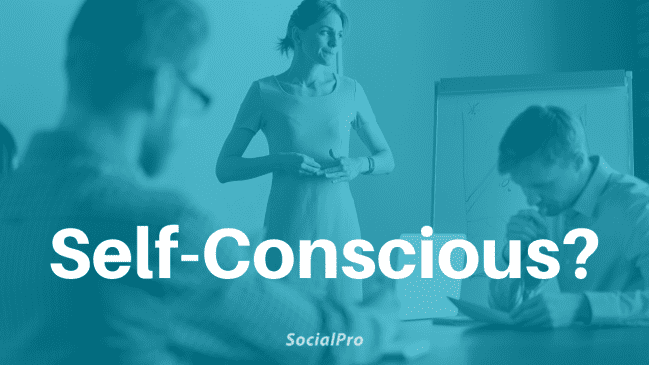





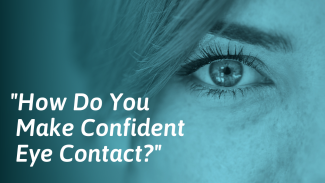

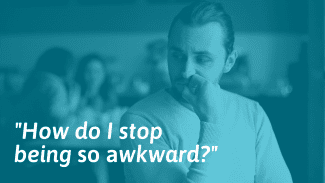

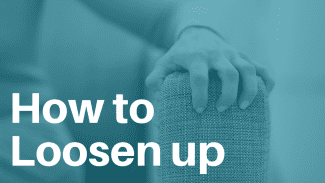
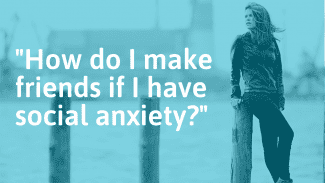
I always think that I am on a spotlight and everyone is judging me like in a social situation if i will not talk to someone they will find me rude and if i talk to someone they will find me nervous and anxious and will never talk to me
I’m afraid to hag around always by my self becuase i can’t realy make funny jokes or funny chat it makes me feel like um different from others
I am afraid of awkward silence, repetition of sentences, mistakenly using incorrect vocabularies to express myself in a conversation.
I feel like people only want to talk to you if you are constantly funny, entertaining and making them laugh or smile. I find it so mentally draining trying to think of things to talk about and be funny. The second I run out of things to say or I cannot find something that interests the other person the conversation is dead. I find the whole thing so awkward and stessful, I feel like people are disappointed in me the second time they talk to me when they realise I am not actually fun to be around and I have run out of ideas. If i try to relax and be myself people find me weird. I can’t keep up with the fake me and the real me is not friend material. So i try to avoid getting to know anyone.
Same. I feel like, people only like talking to you if you seem perfect, or if your funny.
I feel the same way. Even though I do have a pretty good sense of humor, I’m not always trying to be funny. Also, it so tiring to find interesting topics to talk about
I feel similar, I’m always scared that they’ll think I’m boring and just leave and I start to overthink. There was actually a time I was trying to make a friend , the conversation started to die down and they got up and left to go with a more interesting table with other people, I felt embarrassed. The facade is very tiring to wear and I went from a lot of friends to 1. I try too hard and make a fool of myself so if I did make friends they wouldn’t take me seriously anyway
I afraid of not having anything meaningful to add to a conversation and also causing those dreadful awkward silences especially when I’m around someone that I admire or like.
Exactly, what happens to me. Like most times I wonder how my most of my classmates stay all day talking, like what are you talking about?.
I wonder the same thing, how do they do it? How do they just have so much in common to talk about?
I’m afraid that I have nothing interesting to say to others, so I talk quietly or not at all.
That’s exactly how I feel Amaya
I am afraid that I might sound stupid, or people may think that my fluency in english is not good enough.I fear criticism and negative judgement.
I avoid talking because I feel like i sound so stupid and boring. I feel like I have nothing interesting to share like my coworkers do.
I’m scared 0f not bringing idea when I talk or been bored
The issue is I tend to think that no one would listen when I talk, that I’m not smart enough to bring ideas, that I can’t be a creative so this makes me get scared whenever I meet people.
My problem is that I tend to think that I’m unworthy of talking to someone, stranger or not. I feel that I’m not informed enough, not interesting enough, not hype enough. So in the end i think that the person might just find me boring and so would probably prefer having a conversation with somebody else and not me. Also I tend to focus more on how I sound, you know am I being interesting enough, to the point where i care less about what the person is saying and more about my response.
I’m afraid of not making sense when I talk or sounding too boring. I realized that in conversations with strangers I ask a lot of questions and don’t share too much details about myself. I’ve been working on it, but I can see how this once sounded like I was interrogating someone versus actually getting to know them.
I afraid of being judged for what I say, especially when I’m nervous. Before I say what I want to say, I plan it in my head, and feeling rest assured that in good to go, feeling that I have something interesting to talk about, but when I say it out, I would just feel like vaporising, my voice will start to shake, I start to smirk and it feels weird but that’s the way it happens to me and I hate every bit of it. To be honest, I thought this lockdown was a blessing for me considering how I don’t have to go out or anyone’s face. But to the few friends I have, am perfectly normal, funny,(though I do feel anxious sometimes). If only I could be more free. I know am not confident enough but what to talk about is also posing a challenge. Thank you.
I can very much relate to this, so thank you for sharing.
Omg sameeee
I’m afraid that when I talk more and show myself more that people wouldn’t like me. I heard someone say to me that there will always be someone who doesn’t like you but I always had the feeling that nobody had a problem with me when I was so silent. But they are actually kind off forgetting me. So maybe I rather have some people that don’t like me and that a lot of people that remeber me than that nobody doesn’t like me but that they are also forgetting me. Even though it wouldn’t be easy to show myself more.
Its so good to know that I am not the only one who is afraid of being judged. I always worry about others people opinion even though some are not even close to me. I recently printed out some positive quotes to stay positive and develop self compassionate. I wanted to share one of them which goes like this: “the greatest prison people live in is the fear of what other people think”. I find this quote so true! But we are strong and we should not worry about the opinion of others. We can do it guys!!
I’m afraid of being judged of my apparent meaning not beautiful enough, how I talk, and a mom of two daughters, just in my 30s, my complexion is another issue, my ex use to talk about, my featured nobody likes and I am less talkative,
My ex always cheated on me, I just lost hope of myself of being love again. And who will appreciate me with kids and my looks, people judged base on my past also.
I am afraid to talk to people because I think they judge everything I say. Because of this fear, I don’t even have any friends. Even if I do, I hesitate to start talking to them and people, and then I am all alone.
I know how you feel. At one point I had a ton of friends and now a very few.
It is really good to see all comments . After like 10 years I realized that I have severe inferiority complex with people. I am afraid with negative conversation and my heart becomes very heavy when someone mean to me or pass any comments which I think later on a lot .I speak first then later on think about it and regret and anylyse people comments and gets panic. I really feel myself boring and no one wants to be my friend . I am quite lonely person without much social life. In group people sometimes let me down and laugh at me. I feel terrible and cry.
This thing happens mostly when i’m with people i’m not very comfortable with yet or people i think are gonna judge me. Whenever some people like i said above are having a conversation I never know what to say even though i want to say something because i don’t want to come off as the shy and quite person but i end up do because i think they will judge me or something about what i will say.
I’m afraid of being perceived in a negative light but Honestly, it’s not so much that, as it is an inability to string together a response and project it out loud.
I absolutely cannot process thoughts while having a conversation and I unfortunately come across as unfriendly.
I feel afraid of talking to people not sure why I always think they think badly of me or think I’m weird as I’ve been on my own for so long but they don’t know that. I feel sometimes I just don’t know what to say. I’m scared of being independent and confident as I think something bad will happen!
same!
I have major difficulties talking to people because im afraid they are going to think that i say stupid things and dont know how to start conversations. Also i dont talk to the girls i like because im afraid they re gonna say im stupid and they re never gonna go out with me on a date or something
I have lil bit problem in pronouncing alphabets like t or s or k as i have lispsing problem by birth , i was bullied for it in kindergarten school too.
Although it has become much better but i still feel like that whenever i try to socialize that they must be judging me inside or pitying me or they are gonna ask me about it.
I always get butterflies, racing heart and shake. I feel like when I’m having a conversation I need to excessively swallow because I’m going to choke on my words. I get really embarrassed if I can tell someone knows I’m anxious in social situations. My face goes red and I always think people are watching me. I’m always looking out for facial expressions from others to give signals of how they feel about me, whether they see me as nice or they think I’m weird. People’s eyes really scare me, when I look into them I almost loose myself, everything just goes blank and I have to snap myself back to reality. Im worse with some people more than others. It doesn’t feel real sometimes, my body doesn’t feel mine because I can’t control the symptoms. I thrive from being alone, I love it but also hate it. People are just draining for me so it’s nice to escape and be alone, but it hurts when I have all these thoughts to not share them because I am alone. Which I choose to be. That’s just some of my social anxiety. Thank you for allowing me to share!
That’s exactly what I feel your not alone and I’m not alone, thank you for sharing this because it really made me feel better. I have always been bullied at school which made everything worse and I’m trying to be more confident. I wish you the best,????
Smh… I get nervous in general, not for being judged for any particular reason.
I can have motivation to try and start conversations with coworkers or strangers. But I always have the anxiety of everyone around is listening and watching. The mornings give me anxiety.
I have more anxiety the longer I stay around people. There sometimes is an awkward silence and I feel most people would rather not be around me or try to escape it. Makes me feel like an extreme oddball.
This seems relatable. It distracts me at times to have a conversation (even about regular old stuff) if other people are listening. Like if I have to make a phone call, I always try to find a private place. But the call itself isn’t necessarily the problem.
When I start talking in a group or in public, my greatest fear is what if just forget my words and stand speechless. Also when I start speaking, I’m too anxious to say what I want to say and in the process, I forget to listen to others.
Thanks for the beautiful article.
I also feel self conscious in social situation and feels like Im in spotlight.I feel awkward to talk with strangers.I have awkward silence in btween conversation.This is my problem,Thanks Daavid Morin
I’m worried that people will judge something I say or do, and think less of me for being an anxious man. I’m also worried that they’ll judge me based on my appearance, and that they’re always thinking about me.
I’m extremely scared of starting a conversation with strangers and with people I even know. I’m scared that I’ll seem awkward or stupid when I talk. When I talk about certain topics I’m afraid that’ll come off as misinformed or dumb, and I’ll shunned for it. I understand that it’s okay to be wrong, but my anxiety and perfectionism block any of this reassurance. I want to be able to talk or argue for my beliefs without any of this negative thinking. Another problem I have is that I believe that I must be the funniest person in the room. That I need to be able to create any joke about any situation. I understand that this is a unrealistic standard, but every time I get into a conversation I can’t help but think this.
You are not alone. I couldn´t have explained it better. I’m tremendously scared of being seen as dumb and boring. The worst part? I don´t only feel uncomfortable around strangers. I feel uncomfortable around my friends and some members of my family too.
Every time someone talks to me I get nervous. I can never focus on what the other person is saying because I’m too busy worried about what I’m going to say next or how I want the conversation to be done already. I feel like I come off as awkward. I feel like the person can sense that I am nervous/scared. I seem to never have anything to talk about. My mind goes blank. I really wish I can converse with someone without all this going on in my head. I want to feel relaxed and calm.
My mind also goes blank! I worry about being judged as boring Or too quiet or not as smart because of this.
I’m always so worried that I will say the wronged thing and upset someone. I feel that I am always comming across as rude because I’ve missed some social cue and said the wrong thing in the wrong way. I don’t want to seem uncaring I’m just terrified and overthinking things. It’s hard for me to get out of my head long enough to understand what the other person is communicating. Conversations like this make me fell like I’m going to throw up or faint so I excuse myself to the bathroom or someplace else.
I’m worried that I come across as self absorbed, or that no one is interested in what I have to say. But when someone comes across as interested on what I have to say I worry on how to keep a conversation going
I’m afraid of people ceasing to like me. I’m ok talking with strangers most of the time because I know they’ll forget me. But when someone suddenly shows genuine interest in getting to know me, I feel like I need to escape. The feeling of someone getting to know me and then being disappointed in what they find scares me.
OMG, I have the exact same fear. I usually can find the gut to talk to someone I do not know or join a group of strangers but then the fear of being rejected by disappointing them usually takes over and I start to withdraw; or I lose contact easily with people.
Have you tried any therapy or techniques Lima?
I’ve never been to a therapist. I decided to subscribe to this website only the other day. My plan is to first try the things here as soon as businesses open again. I was thinking that a church would be a good place to try since the people there are the same every week so itll he easier to form a friendship with them. Whenever I’m afraid of something I usually get over it by facing it head on. I used to be afraid of driving and avoided it for 6 years, but last year the only place that would offer me a job required driving. Now I’m fine with driving. I even messed up the first day and backed into a parked car.
This often happens to me. I don’t know how to overcome this.
@Lima, good for you that you learned how to drive!. I think these other things that we are able to overcome in our lives are testament that we will overcome this fear of rejection of who we are
@ Jasmime: You’re not alone. That realization alone has helped me
Hey, i also feel the same way, i do some walks around the city and i see many groups of people, talking and laughing and that makes me feel even more lonely cause i dont have the courage to go there and try to start a conversation with them. Even when a girl i like shows some interest in me and tries to start a conversation with me i feel like i need to slip away somehow to not look stupid or dissapoint her